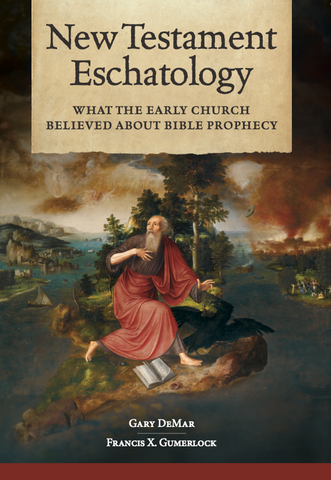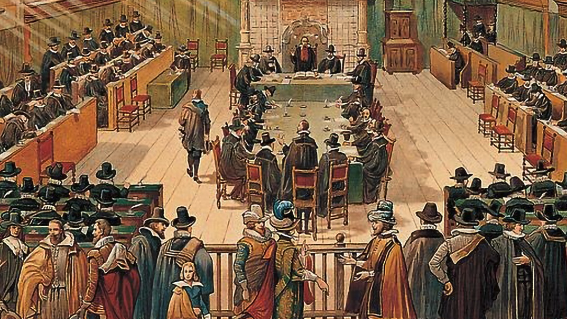Important Note: Gary DeMar’s Facebook page has been taken down. To keep up with the latest from Gary and American Vision or to continue the conversation from articles, podcasts, or videos, please go to the AV Facebook page here.
Gary discusses recent discussions he’s had with people regarding eschatology and creedal authority.
All creeds and Christians who recite them are bound by the text of Scripture. If we cannot agree on this basic point, then we cannot agree on much else. Yes, the creeds have consistency and history on their side. This is not in dispute. I believe Jesus came to judge the living and the dead, not because the creeds say it, but because the Bible says it. The creeds and the Bible should not be in conflict. The Bible is to govern the meaning of every word of the creeds. Jesus coming to judge the living and the dead was future for that Apostolic generation as the Bible makes clear. Like dispensationalists who appeal to the Old Testament to support their views by skipping over the fulfillment of prophetic passages either in the return of Israel from the exile and/or the New Covenant, those reading the creeds skip over the coming of Jesus that took place before “this [their] generation” passed away (Matt. 24:34).
The Westminster Confession states:
VI. The whole counsel of God, concerning all things necessary for his own glory, man’s salvation, faith, and life, is either expressly set down in scripture, or by good and necessary consequence may be deduced from scripture: unto which nothing at any time is to be added, whether by new revelations of the Spirit, or traditions of men.
The WCF makes the correct case that “all things” deduced must be “deduced from scripture.” If there is an issue with the meaning of something found in a creed or confession it is right and necessary to evaluate that issue by an appeal to Scripture. Why is this so hard to understand? The creeds stated correctly what Scripture says, but in my estimation they got the timing wrong as do those who interpret the creeds today.

New Testament Eschatology
Since the futurist perspective has been promoted as an early church reality by so many for so long, few question it. New Testament Eschatology challenges this prevailing futurist view with a careful study of the historical record. The evidence shows that many early church writers understood the destruction of Jerusalem in AD 70 to be the end of the Old Covenant world.
Buy NowGary discusses recent discussions he’s had with people regarding eschatology and creedal authority. It seems that every theological topic of debate can be settled with Bible verses, except eschatology and especially ones about the “Three Questions.” The arguments that most of Gary’s critics make are circular and based on certain assumptions that aren’t actually biblical.

